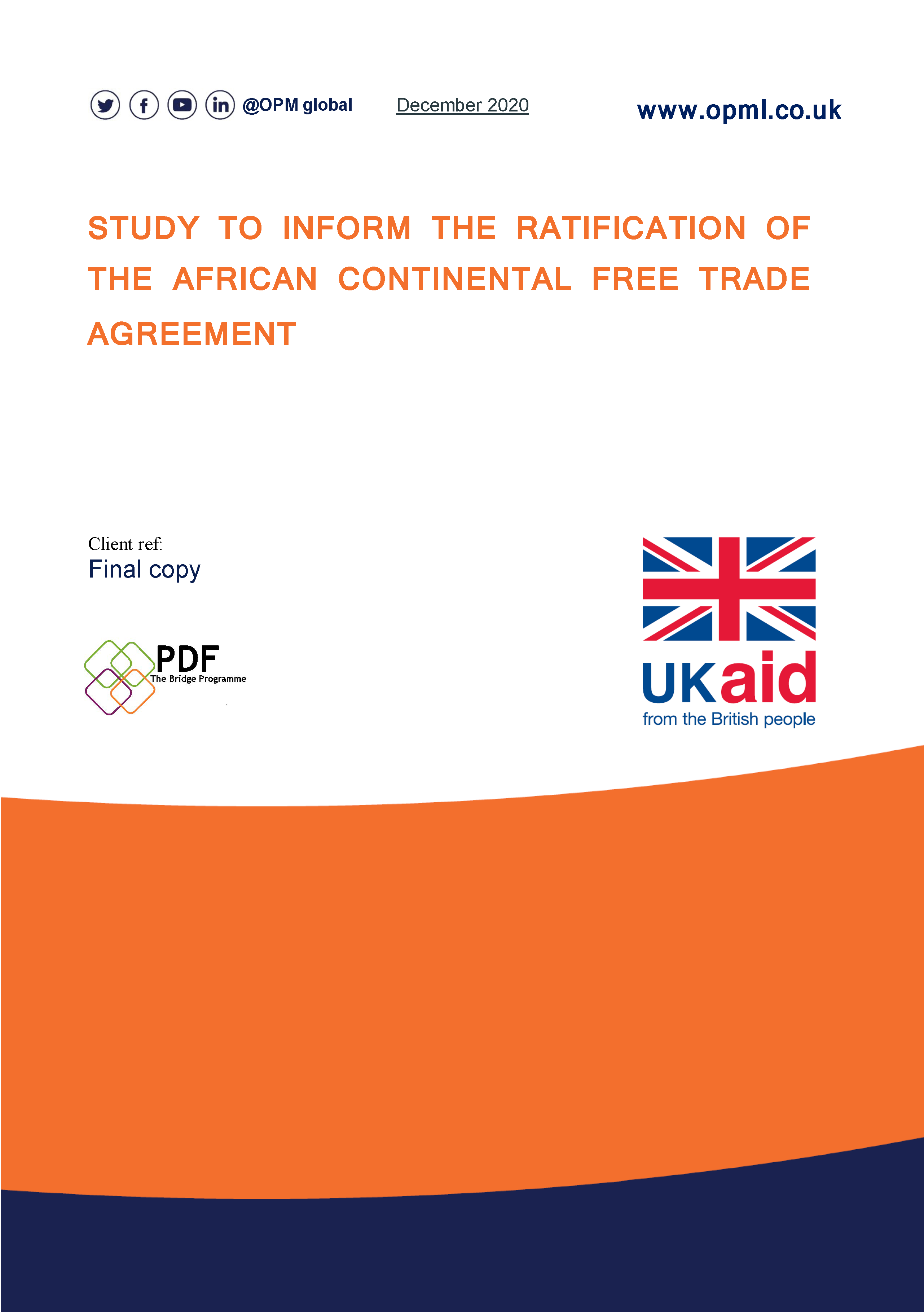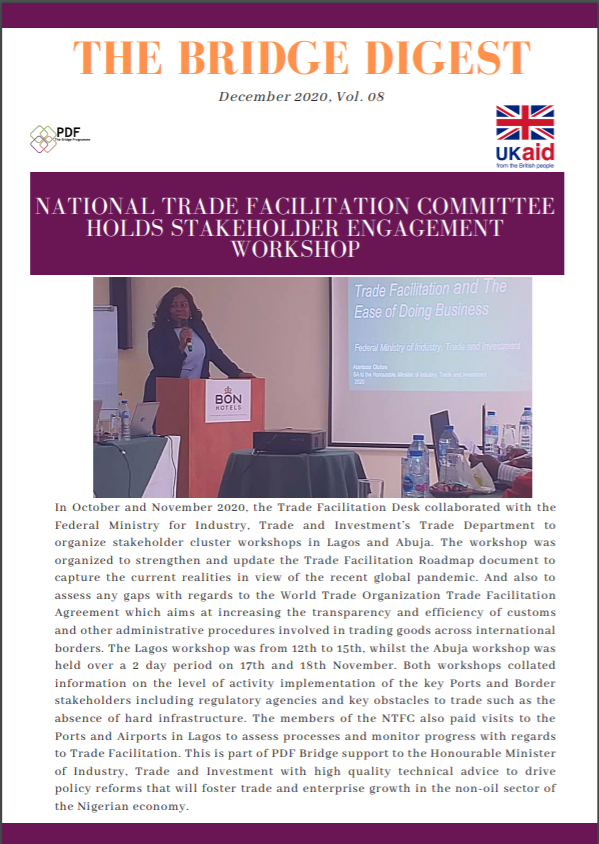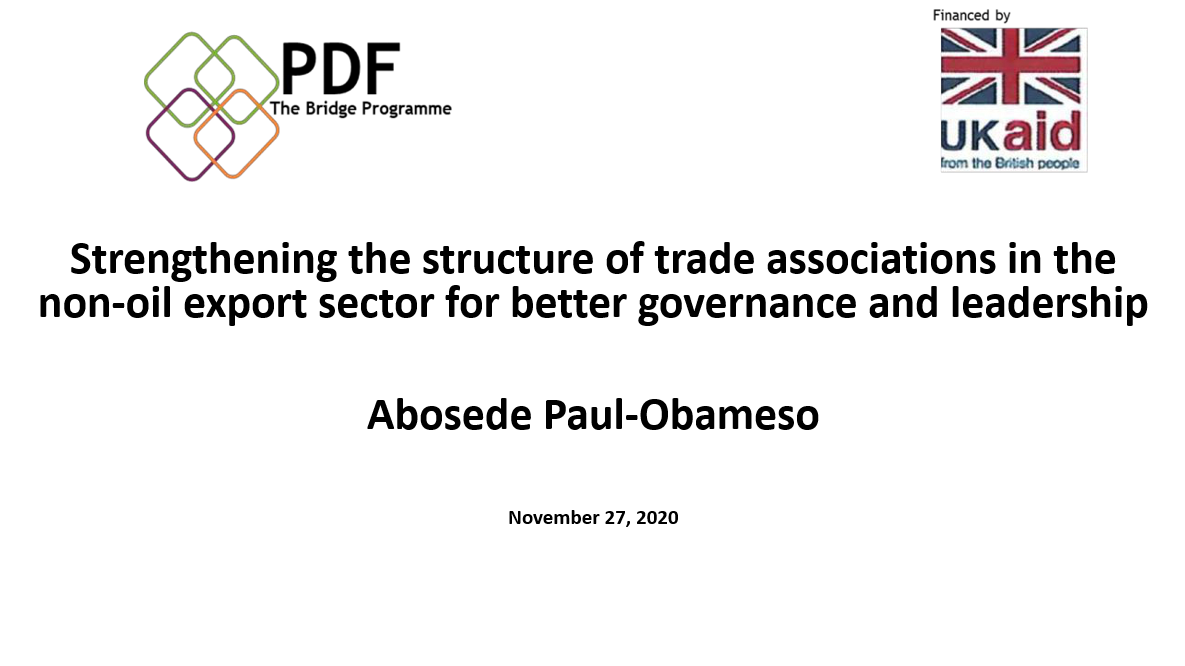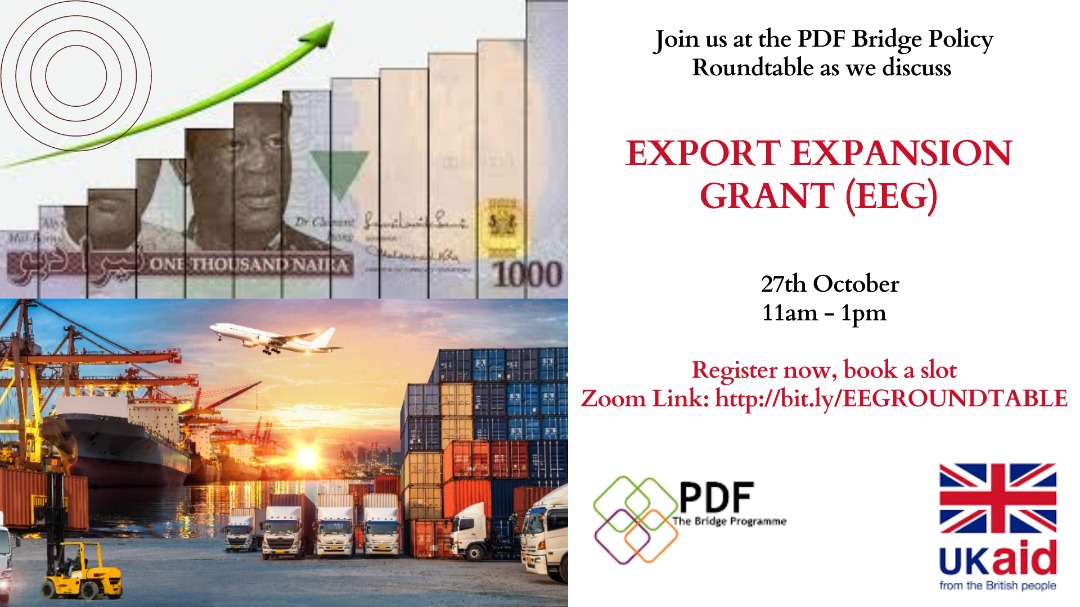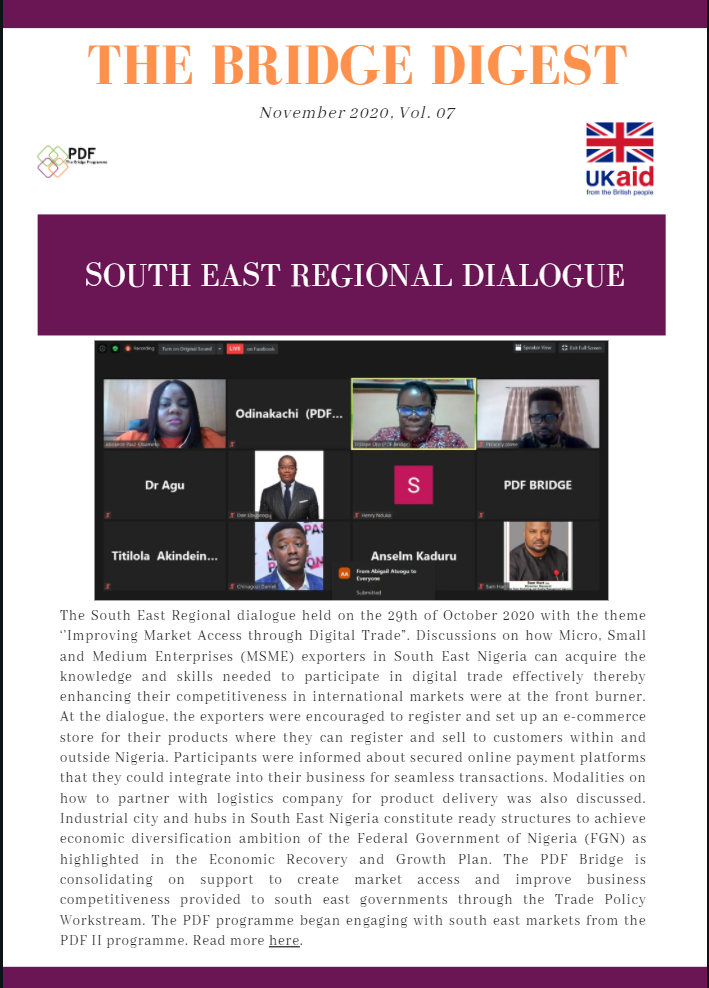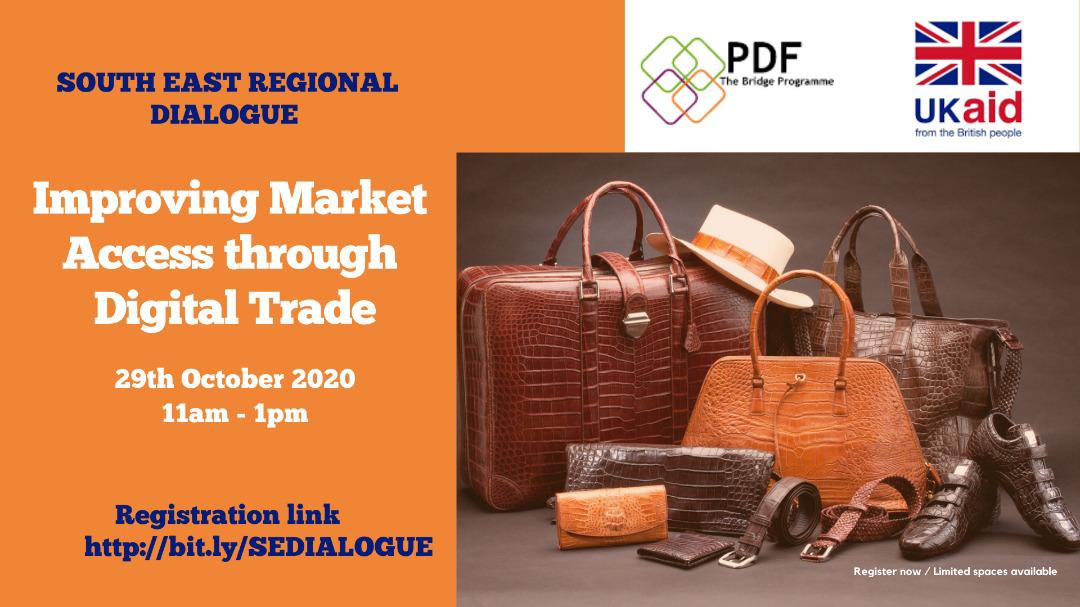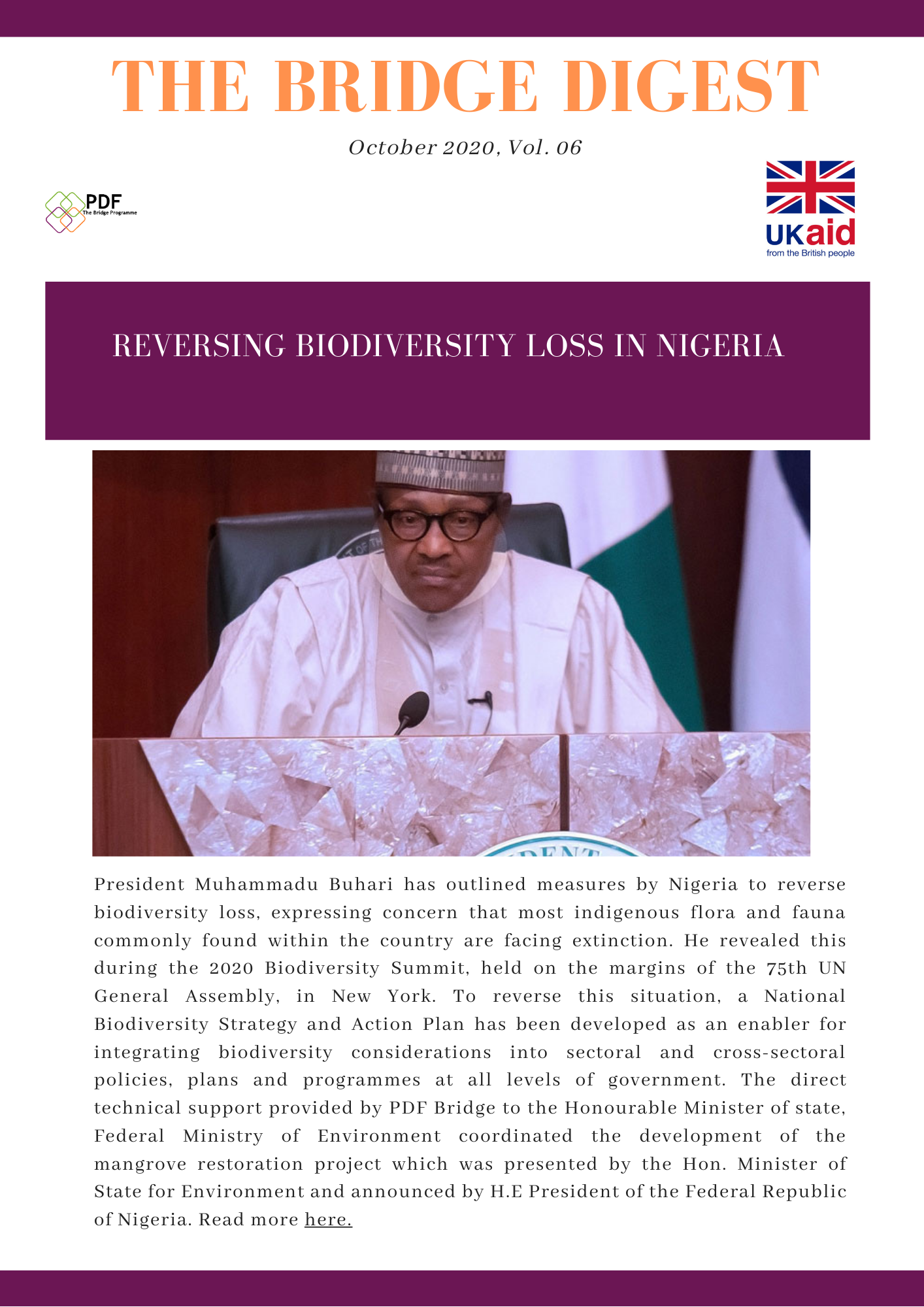AfCFTA Ratification Study
This study was commissioned by the PDF Bridge Programme with a specific term of reference for use by the Beneficiary, the Federal Ministry of Industry, Trade, and Investment (FMITI). It is expected that this report will provide current and actionable recommendations that will support FMITI on the AfCFTA ratification process and enhance its preparedness for implementation.

